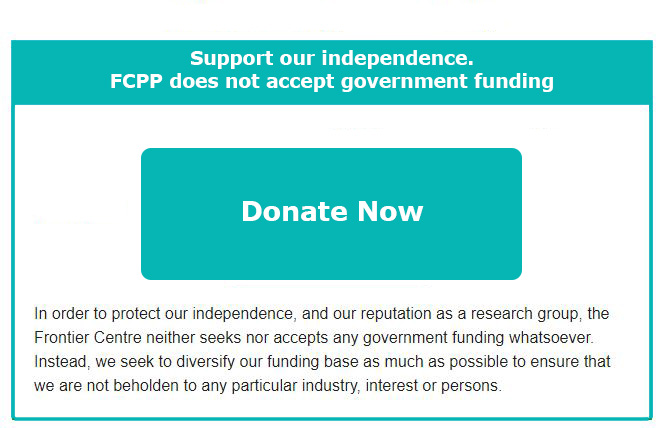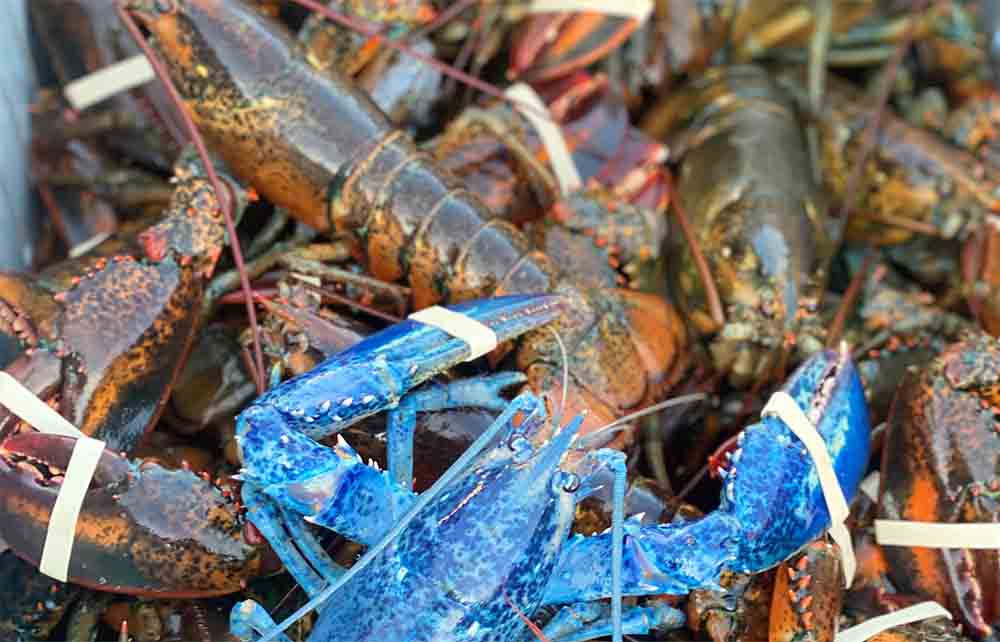A dispute and court case from northern Ontario may help us understand ongoing tensions over the lobster fisheries on the East Coast.
The war over Indigenous fishing rights has played out before in Canadian history. As we reflect on recent violence in Nova Scotia over the lobster fisheries, it is important to know if there are any precedents around the core issues, and most importantly, if there is any insight from prior examples that can help guide us in the present.
The case of the Saugeen Ojibway of the Great Lakes provides some particularly useful insights that can help shed light on the matter of the lobster fisheries out east and provide hope for a reasonable settlement.
Conflict between Indigenous peoples along the Great Lakes of Ontario and the state has been around since the rise of non-Aboriginal commercial and sport fishing around the 1830s and 1840s. Tensions rose early on over a scarce resource.
In the 1990s, things came to a head in the Saugeen fisheries around the Bruce Peninsula in Lake Huron. The case involved authorities placing charges against Saugeen fishers for exceeding the limit on a communal commercial fishing licence. The case made it to Ontario provincial court where it was ruled that the Chippewas of Nawash—part of the Saugeen Ojibway First Nation—had a treaty right lodged in the Bond Head Treaty of 1836, and an Aboriginal right “to fish for sustenance purposes in their traditional fishing grounds.”
This is similar to the language used in the Supreme Court of Canada ruling that affirmed the treaty rights of the Mi’kmaq, Maliseet, and Passamaquoddy bands in Eastern Canada to hunt, fish, and gather to earn a “moderate livelihood.” This provision lies at the heart of the lobster fisheries dispute.
The R. v. Jones (1993) ruling that emerged in this northern Ontario case provoked a strong backlash from the non-Aboriginal fishing community. A provincial inquiry in Ontario noted the escalation of violence in the Bruce Peninsula, including burning of boats and assaults. Also, the government noted the Ontario government’s inexplicable refusal to negotiate a settlement to resolve the issues.
Both of those parts should be awfully familiar to minimally informed Canadians, both in terms of the violence and the government’s liability in not coming to the table to negotiate a solution. It is widely acknowledged now that the federal government’s failure to negotiate an agreement defining terms like “moderate livelihood” only exacerbated conflict and tension between the two communities. It could be argued the government was quite negligent in this regard.
It was in 2000—seven years after the Jones ruling—that the Saugeen Ojibway and the provincial government concluded a five-year management agreement for the commercial fisheries around the Bruce Peninsula. Douglas C. Harris and Peter Millerd—two Canadian legal researchers—wrote an article in a law journal on this subject, in which they noted provisions for commercial fishing boundaries and seasons, data collection and sharing, and joint committees to recommend acceptable harvest levels. Moreover, they mentioned the agreement was renewed in 2005, and renegotiated in 2013.
These successive agreements demonstrate that there is hope in negotiating these issues. Defining words like “sustenance” and “moderate livelihood” is not as difficult as one may assume. It also reassures us that cooler heads may prevail in the end.
In fact, the Jones ruling itself provided some insight into this matter that may be useful in looking towards settling with the East Coast bands over the lobster fisheries. The term “moderate livelihood” is not so nebulous when you see that it involves one aspect of Indigenous fishing rights that exist along a spectrum. Canadian courts have long recognized Indigenous rights to traditional fisheries. The first sense is a right to “food fisheries,” which is largely ceremonial and for direct sustenance of individuals and families. The second sense is the right to an Indigenous “commercial fishery.” There is a specific example on Canada’s Pacific Coast recognizing one community’s right to a full Indigenous commercial fishery. Incidentally, the court was quite clear on grounds where the government could justifiably limit those Indigenous rights to the fishery, and not just for conservation reasons but for other reasons. 
The term “right to a moderate livelihood” fits somewhere in the middle of the spectrum. It includes elements of both a food fishery and a commercial one. But, expanding on definitions established in the Sparrow ruling, the Jones ruling found that “the Saugeen Ojibway Nation has priority over other user groups in the allocation of surplus fishery resources, once the needs of conservation have been met.” The right to sustenance, therefore, included commercial as well as food fishing, although the commercial right was directed “to a subsistence use of the resource as opposed to a commercially profitable enterprise.”
These rulings limit and better define the terms of the discussion. If properly followed in negotiations between Ottawa and the Atlantic bands, there is no need for non-Indigenous commercial fishers in the Atlantic region to be worried that respecting Indigenous rights will come at the expense of conservation.
Those involved in the Atlantic lobster fisheries dispute should learn from the Saugeen dispute in northern Ontario and follow the rationale set down in the Jones ruling. There is no reason the government cannot negotiate an agreement that will protect the resource for all.
Joseph Quesnel is a senior research associate with the Frontier Centre for Public Policy.
Photo by Krystal MacKay on Unsplash.



